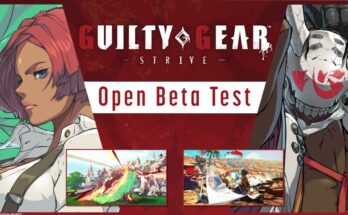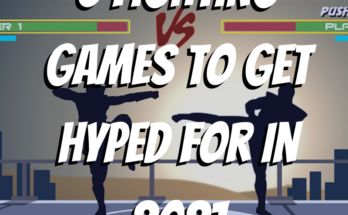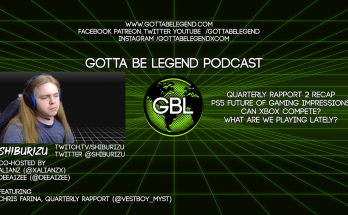Chaf Cancel is an esport writer and FGC enthusiast. This column represents his opinion and you can find him on Twitter for even more analysis.
Before I start, I want to personally thank RobTV for his recent video (linked below). Even though I already thought about the subject months ago, this article sums up most of the points I wanted to bring on that particular debate.
Fighting games always had a weird relationship with Esports in general. If you look at the “History of Esports”, StarCraft and Quake will instantly be mentioned as “the first Esports”. But while those two games were mostly released in 1999, Street Fighter II, as well as many Arcade fighting game series, already had thriving competitive scenes, years before those two staples of PC competitive gaming. Meanwhile, a lot of people within the Esport industry will consider the break-in of fighting games as an esport, with Street Fighter IV and the burgeoning of Twitch as the massive streaming platform we know today.
This is the main subject of this article. The divide between the Fighting Game Community, at large, and the Esports aspects involved within fighting games. It’s a very interesting subject, but I think it is too often misinterpreted, both by the Esports Industry and people within the FGC.
“Broke”
In this video, we see the take on RobTV, content creator and Street Fighter V player. The jist of the whole rant is about the lack of monetary perspective from the FGC. Rob points out a double standard from a lot of people within various FGC-spheres on social networks. He also talks about the lack of involvement from “organizations within the FGC”, not doing enough to engage with their own fanbase, not caring enough about the “personality” of their players, or focusing too much on their player’s tournament results. The “entertainment part of Esports” should be the main focus of organizations signing up fighting game players for Rob. In general, most of the point Rob is making can be summarized in this quote:
“The FGC has this extreme phobia of Esports. Of anything involving money. But the same people want to see […] their favorite players perform [at tournaments]. But, buddy! People have to eat!”
And I do agree with Rob, to some degree. The uproar on sponsors from some people in the FGC is pretty ridiculous and doesn’t really make sense. The same thing happens within other mainstream sports when you can see non-endemic brands on the player’s jerseys, or getting involved in ads. Sponsors, especially non-endemic ones like Pocky, or even Cup Noodle for the Tekken World Tour, is what brings credibility to an esport competitive circuit, which makes it legitimate, and more stable. But for me, there’s something very wrong within his speech, and that is simply Rob’s use of the term “FGC”.
The C means Community

I think that part of what explains the situation we’re in is how vague and loose we were, for more than two decades, on what the FGC exactly is. Anybody has their own definition of it, which is a problem on its own. If we don’t know how to describe and explain the community, where are our boundaries? What can be counted as within our community? What is considered out of it? I’ve described my own definition in this Quora answer, and that’s on what I will base this article on. I tried to get into important details in my answer, such as what is the FGC’s point of origin or what their roots represent, but for the sake of the article, I’ll simplify it.
In a nutshell, the FGC is a nebula of groups around the world. It isn’t a company nor an association. It has no authority figure, no leadership. Its origins are from the Arcades, and those various groups are playing fighting games series that are deeply rooted within the Arcade industry. The FGC is not the community of all fighting games.
At the same time, whenever it’s the publishers, developers, event organizers, etc, Esports always have a leadership. Most of the Esport Organizations are registered as tech companies. And we’re mostly expecting publishers to handle some part, if not all, of their games’ esport pro-scene. Publishers related to fighting games do the same thing, even if a good part of the qualifiers involve community tournaments made by non-profit associations.
That’s where the frictions come. The FGC never was an Esport structure. It was the birthplace of some of it, like EVO, CEO or the Red Bull fighting game projects all around the world, but the entire community was never concerned, and even less created, by the Esport Industry.
Hair in the Noodles

There is a big misunderstanding of what the FGC actually is, or stands for. When an endemic sponsor, like Pocky or Cup Noodle, endorses an event, this is marketing. This is within the borders of Esports. When an organization promotes its players and creates content, this is also marketing. When companies can afford to invest an Arena like the Mandalay Bay, that’s because they can afford it, and organize world-sized events for a weekend.
This has nothing to do with the FGC. The community isn’t a market when people sell and buy publicities or goodies. Personalities within the FGC aren’t created or exploited so that “money can be exchanged”. The FGC was created and is defined, by many groups of people around the world, sharing the same passion for Arcade-based fighting games. Esport Organizations and Professional Event Organizers do not define the FGC at all. They’re here to grow themselves and their market, not to grow the community.
Usually, it’s the people within the Esport Industry that make those sorts of mistakes, but now, even people within the FGC like RobTV also do those misinterpretations. If RobTV gets successful as a content creator, he will not contribute to growth or maintain the actual FGC. It’s far from being a bad thing since it would boost the overall popularity of the video game genre, touching a more mainstream audience. Which is great for the industry, and for people involved in making fighting games, but not for the actual community of players.
“FGC” starts to lose its entire meaning. If we’re talking about businesses, brands and huge events like EVO, we’re talking about Esports. Not the FGC. That sort of talk is damaging the grassroots of the community, maintained by non-profit associations or volunteers, doing tournaments and local gatherings across the entire world, as well as all the online communities and groups out there. They are the Fighting Game Community.
Bridging the Rift

This doesn’t mean that the FGC and Fighting Game Esports cannot co-exist. The FGC can be the perfect training place for the people who want to be professional players. In a way, it can be similar to what happens in Pro-Wrestling. When there are dozens of independent promotions with home-made or lesser-known talents. And some of the best free agents can get contracted by the biggest and most prestigious promotions in the sport, like World Wrestling Entertainment, or New Japan Pro-Wrestling.
The core of what RobTV is saying is true. Whenever you’re talking about Community or Esports, fighting games have fewer incentives and is way less stable, than the other main competitive genres with pro-scenes. But thinking that the FGC’s goal is to have more EVO-sized events during the year is just plain wrong. It would only benefit the businesses, organizations, and pro-players, but we will still have volunteers and non-profit associations, barely having an even budget at the end of a community-made FGC Major.
Unfortunately, the best thing that could happen to the FGC for being more stable and having more locals, would be a comeback from the Arcade Industry. Not impossible, thanks to companies like exA-Arcadia, but such a project would cost billions to be viable in the future. Which is far from what the Arcade Industry is valued today. Great efforts have been made, from arcade bars to esport gaming bars, but it still needs a big input from people knowing what they’re doing, since the main public for esport bars are the different PC-focused communities, not very known to care about fighting games in general.

But what we can and should do, is to stop expecting the passion-driven FGC to act as Esport companies. The FGC is unique. It’s the rarest competitive community that isn’t centralized around one IP or one publisher, but several. Bringing people from various backgrounds to play various games is a way of thinking that is in the complete opposite of Esports. When was the last time that League of Legends and DotA 2 both shared a major together? Diversity is a strength the FGC has, and we shouldn’t try to hide it. We shouldn’t spoil that diversity, just for more of the same elite players, playing the biggest games on the biggest stage.
Putting passion of the community above personality shouldn’t be treated as hatred, or worst of all, anti-progress. We can progress as a Community, without damaging the potential of the games we play, as being stable esports titles.



